Historical Knowledge Normal Math Worksheets for Ages 3-9
6 filtered results
-
From - To
Discover our engaging Historical Knowledge Normal Math Worksheets designed for children aged 3-9. These printable worksheets combine essential mathematical concepts with exciting historical themes, fostering a love for both learning and numbers. Perfect for preschool and early grade educators, the worksheets encourage children to explore historical events and figures while honing their counting, addition, subtraction, and basic problem-solving skills. Our resources promote critical thinking and creativity, making math fun and meaningful. Give your young learners the opportunity to connect math with history, ensuring a well-rounded educational experience. Download and print the worksheets today to inspire future historians and mathematicians!
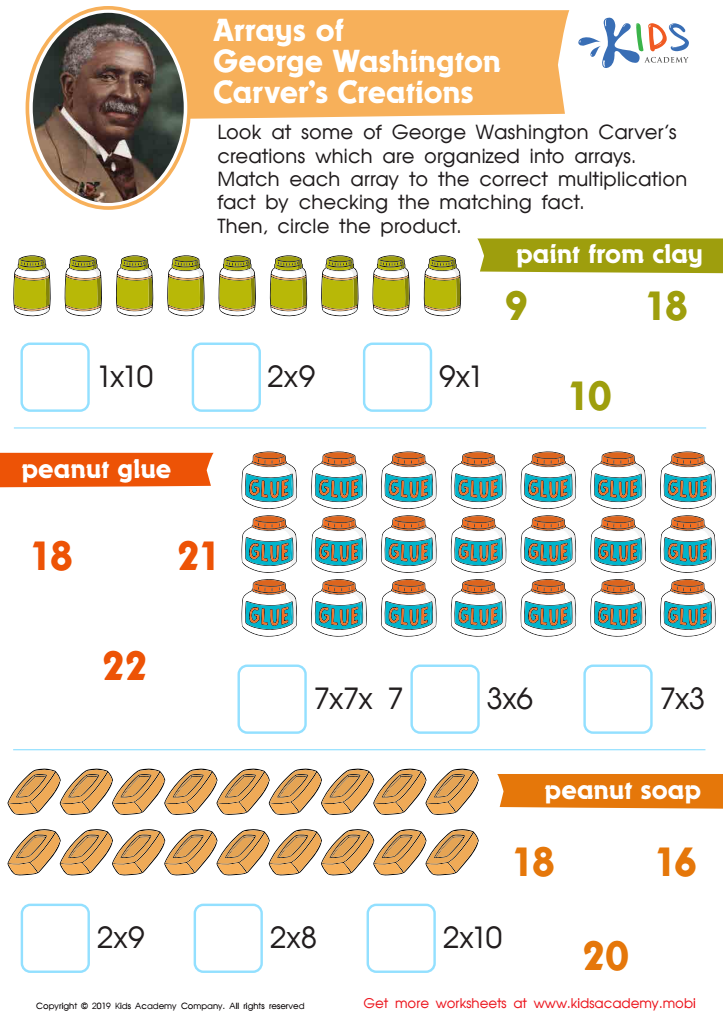

Arrays of George Washington Carver’s Creations Worksheet
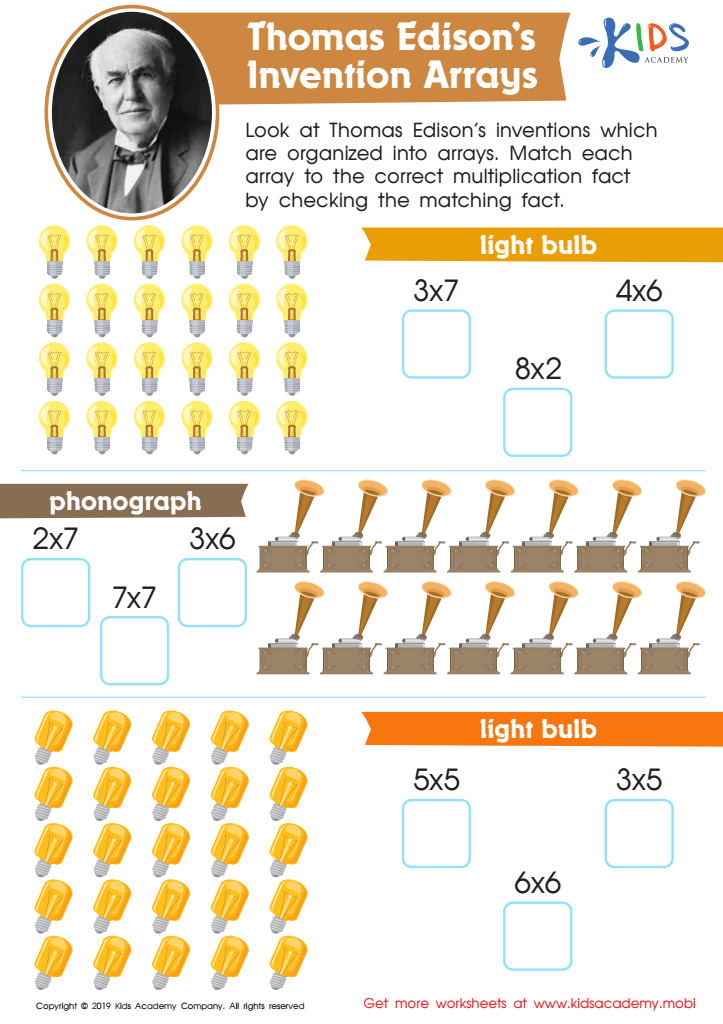

Thomas Edison’s Invention Arrays Worksheet
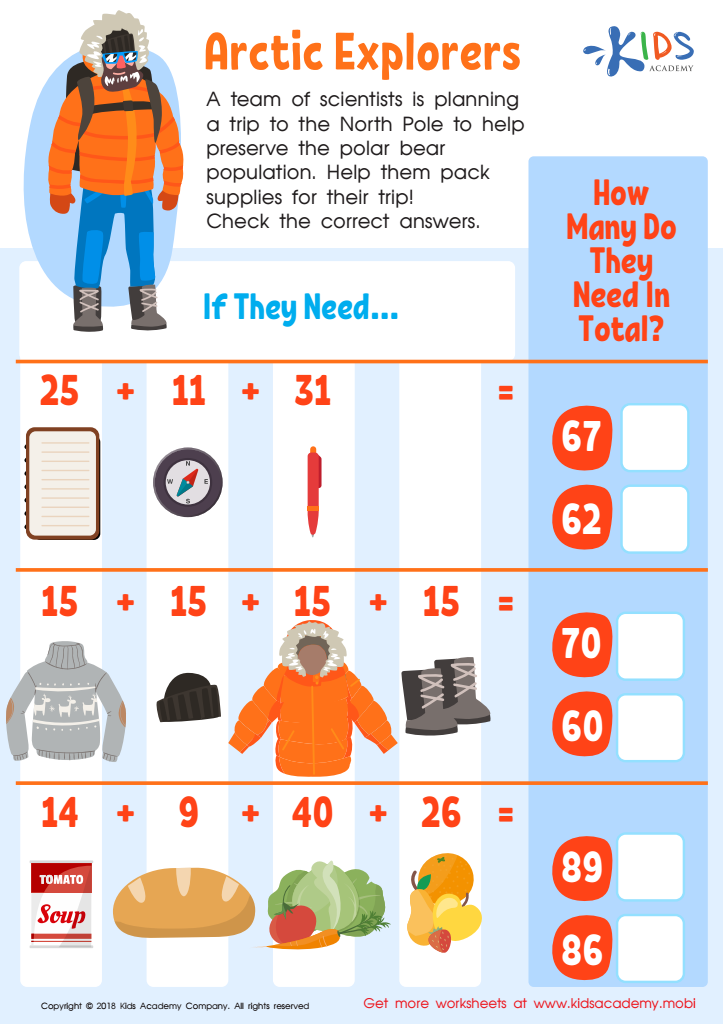

Arctic Explorers Worksheet
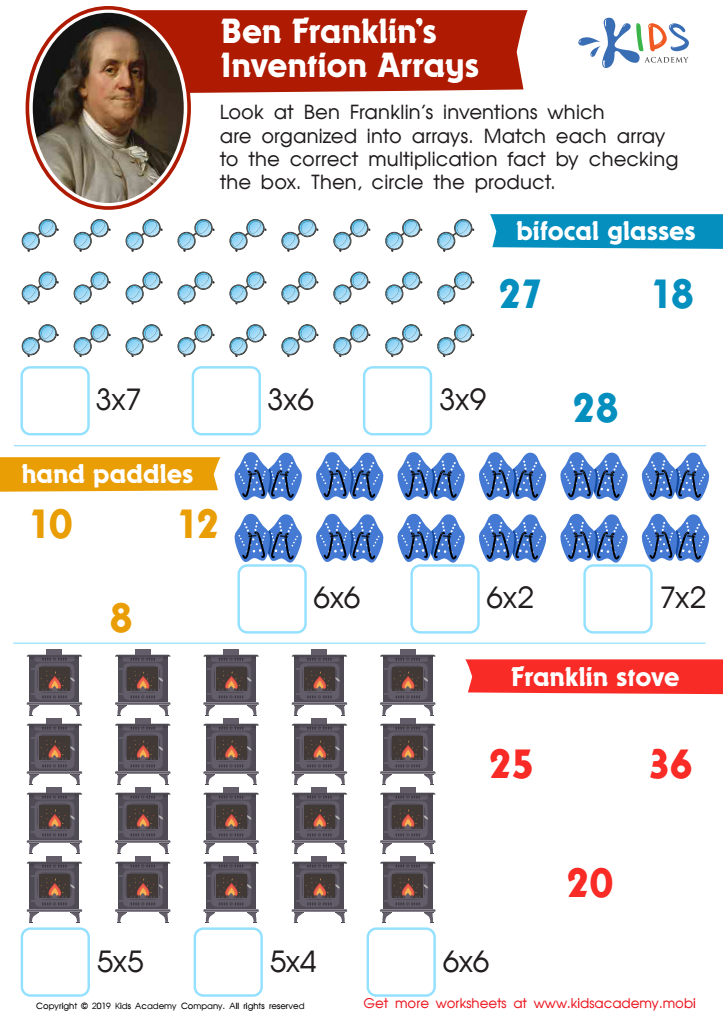

Ben Franklin’s Invention Arrays Worksheet
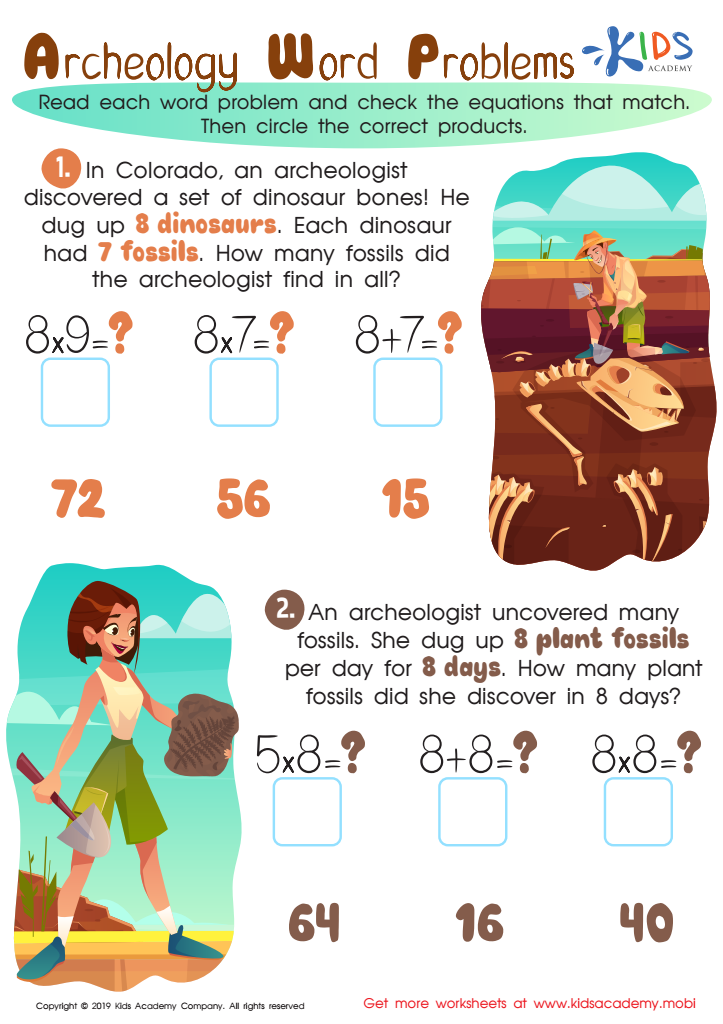

Archeology Word Problems Worksheet
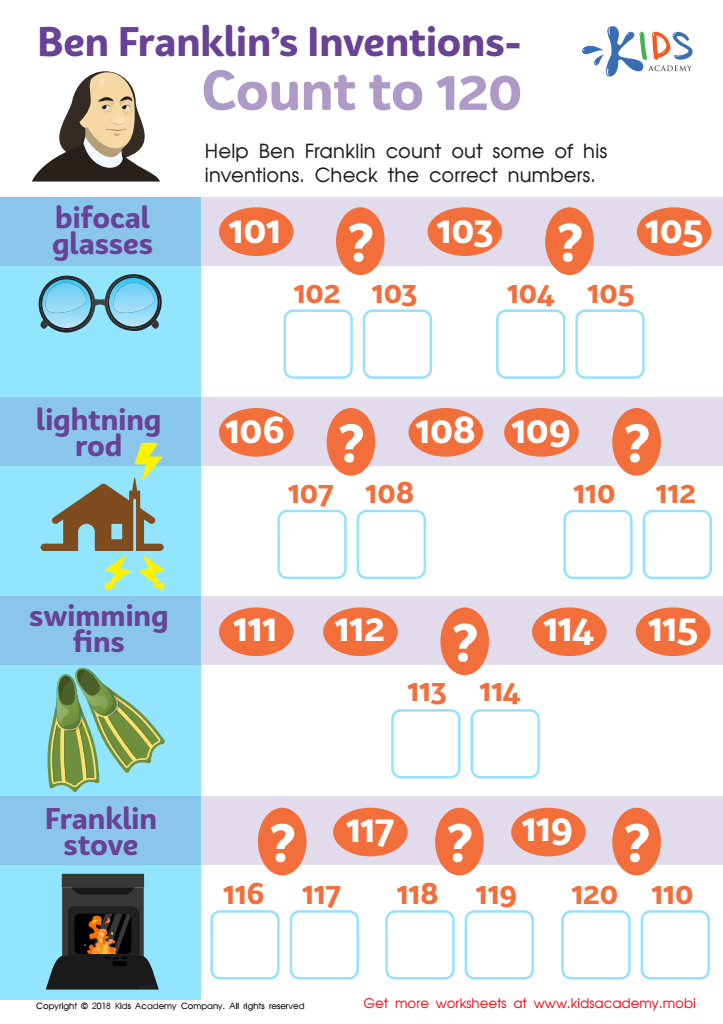

Ben Franklin’s Inventions – Count to 120 Worksheet
Parents and teachers should prioritize historical knowledge and normal math for children ages 3-9 for several compelling reasons. First, early exposure to historical concepts fosters curiosity and a sense of cultural awareness. Understanding history helps children appreciate their roots, develop empathy, and connect with others' experiences. This foundational knowledge enriches their worldview and encourages critical thinking as they start making sense of the complex society around them.
Normal math is equally crucial during these formative years. A solid grounding in mathematical concepts shapes a child's analytical skills and problem-solving abilities. Engaging with numbers early on guides children in recognizing patterns, understanding relationships, and developing logical reasoning—skills vital for success in both academic settings and everyday life.
Moreover, integrating historical knowledge with math can lead to imaginative, cross-disciplinary learning experiences. Activities such as counting objects from historical periods or using timelines to introduce sequences can make learning interactive and fun. This multidimensional approach not only solidifies knowledge in both subjects but also promotes a love for learning, critical in nurturing lifelong learners who can adapt in an ever-evolving world. Ultimately, focusing on these realms empowers children to thrive intellectually, socially, and emotionally.
 Assign to My Students
Assign to My Students





.jpg)
















